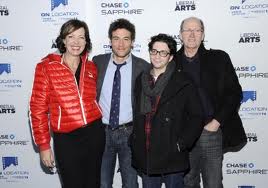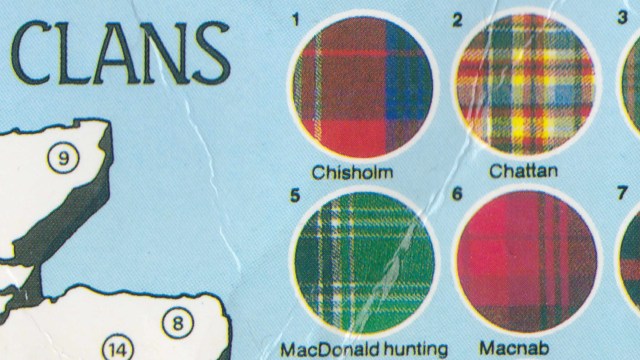Liberal Arts?

So, a few of you have asked, why have you stopped talking about movies?
It’s not that I’ve stopped seeing them. The truth is that movies have gotten so much worse than the best of TV that they haven’t captured my full attention. I mean, of course, the excellent shows you can see—mainly but far from exclusively—on HBO.
Let me pick a topic at random: classy liberal arts colleges in Ohio. Kenyon and Oberlin are known as two of our most idyllic and genuinely excellent exclusively undergraduate institutions. They have been, over the years, been especially strong in literature and related subjects, and so their graduates have the talent and the inclination to reflect ably and movingly on their effects of their college years on their lives.
Two results: the HBO series Girls, directed by and starring Oberlin alum Lena Dunham, and the new indie film Liberal Arts, directed by and starring Kenyon alum Josh Radnor.
Radnor, as I hope you have no reason to know, plays Ted on TV’s How I Met Your Mother—an annoying yet forgettable character on a stupid sitcom. I forgot to mention that major network TV continues to get worse.
Girls is an endlessly subtle, funny, and brilliant commentary on the cluelessness of liberal-arts graduates living in the city these days. They major in stuff ending in studies—such as film studies—that offers no real contact with our great and bookish tradition of art, philosophy, theology, music, and literature.
So the grads are sometimes pretentious enough to think they can or deserve to earn a living as writers, but they have no real love of reading. College also made them, in quite degrading ways, naive and self-deceptive when it comes to sex, relationships, families, and so forth. It also made them almost completely unfit—because of their vain sense of entitlement and lack of marketable skills—to become productive and self-reliant parents and citizens.
Everyone knows that Girls is an exaggeration. Dunham herself must have learned something at Oberlin. She quickly became a creative and productive multimillionaire. But the show still tells enough “real truth” to make all us liberal arts professors nervous.
Liberal Arts, by contrast, presents college life as fundamentally ennobling, a kind of transformative experience that can make people destined to live rather ordinary lives much better than bourgeois.
The Radnor character is a college admissions counselor. He studied literature and history in college, and that made him, he admits, unfit for mainstream jobs in the world of business, industry, technology, and so forth. But he was savvy enough to get a job where he “sells college,” a product he believes in.
He returns to Kenyon to celebrate the retirement of his “second-favorite” professor. He’s bored with his life, suddenly single, and nostalgic for his college days.
He meets a precocious and beautiful undergrad woman. She’s in love with everything about college except college men. There aren’t enough of them, and the ones there are are in every way immature and untrustworthy—and so unlovable. She hasn’t liked or trusted any one of them enough to have had sex at college (or anywhere else). She’s a stunning liberal-arts virgin. (Both the scarcity and the relatively low quality of men at college these days are real social problems deserving of more attention that they’ve gotten.)
So the genuinely romantic young woman—a dramatic drama major—asked the romantic and well-preserved guy in his mid-thirties to write her old-fashioned letters—using pen and paper. They exchange letters that display how their Kenyon education has elevated their souls the direction of being able genuinely to share truth, beauty, love, and all that.
Particularly telling and semi-incredible is her revelation of how she was transformed by her music appreciation class. She became all about classical music and opera, and she was able to lead him—with CDs and letters—to share her musically-driven experiences. The right musical mood can make everything and everyone seem more attractive, more erotic.
You know, liberal arts colleges would be worth every penny of their bloated costs if they really did prepare students for a lifetime of leisure in the precise sense, for the erotic enjoyment of music, art, literature, and so forth that is really worthy of them. I don’t believe that intro music or literature courses get that job done in the overwhelming majority of cases. Still, there’s a powerful argument here for you ambitious techno-business geeks to minor in music. That way you’d have something real to do with all your money and your well-earned free time.
The conversational letters in their way arouse the young woman more and more. She remains discouraged by the college “dudes,” and she figures out that what she longs for is a “gentleman caller.” She invites the older guy back for a real college weekend, and he is (barely) gentleman enough and realistic enough not to take her up on her offer to surrender her virginity to him. It’s corny but true enough to say he cares for her—and has properly idealized her—too much.
The whole experience prepares them both to embrace real or “adult” life, while being able to remember that in some basic ways we all do and should remain 19. He soon meets an “age-appropriate” romantically bookish and very pretty librarian…
It’s at the liberal-arts college, we learn, that you have the abundance of leisure—the unrealistic freedom—to read huge, life-changing books all day long. It’s in college that you can call yourself a poet or a writer or a philosopher or an actor and nobody laughs at you.
And it’s in college that you can luxuriously wallow in shameless hyperbole. “I’m reading the best novel even written with the most wonderful professor ever, while munching on the best patty melt ever at the world’s most authentic diner.” Let’s admit that there’s a lot to be said for hyperbole rightly understood. Who could get through life without it? But I for one know I haven’t read nearly enough novels to know whether or not I’ve read the best novel ever written.
Well, you get the picture. Enjoy college for what it is—for what it can be singularly good at—and your whole life will be better, even or especially if you don’t grow up to be a poet or a writer or an actor. That really is the advice that every admissions counselor and every advisor should be giving young people. You know, they’re not doing it!
The film also gives us the disquieting suggestion that there’s something really wrong with not leaving college—being a professor your whole life. It’s, of course, good for students that there are inspirational professors (as long as they remain in some but not in every respect 19), but the portrayal of both the sadness and the cynicism of aging professors creeped me, an aged professor, out. That might have been the most instructive part of the movie.
Sadly, summarizing the plot of Liberal Arts makes the film seem better than it is. The dialogue is too predictable and cliche-ridden and the intellectual conversations too short on intellectual content. We hope that Kenyon is really much better than what we see in this escapist fantasy.
The film still might work as a recruiting tool for college admissions counselors. But it’s hardly an effective antidote for what we see in Girls.
Or maybe it is: Kenyon is surely, on balance, a more tradition-laden or less trendy college than Oberlin.
In any case, the great film about the liberal arts college is yet to be made.
That kind of college needs poets worthy of it more than ever. After all, many liberal-arts colleges have lost confidence in their singular mission and are now about doing all sorts of stuff they can’t do particularly well. And they’re surrounded by powerful, indignant, and ignorant critics who really don’t know what’s to admire about them.





